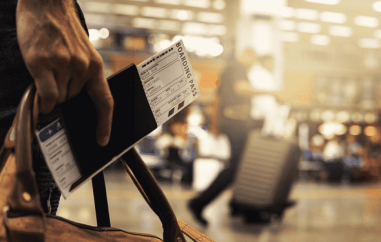Your hotel room may not be that clean
You are on holiday and are not quite comfortable about leaving your home and comfort zone... but then, you either have to do it, or stay at home. Well, the latter is not an option. You need a break. You get to the hotel and first check how clean the bathroom is, aware that Internet pictures could at times be deceptive. You look around and, well, you are impressed. Then you look at your watch... it is 5pm, and you decide to take a brief nap before going out for dinner and a stroll. But before you nod off you pick up the television remote to see what's on the news, and then you zap around to see all the available channels in languages you can understand. You look out the window, look into the mini-bar and are satisfied. Location, super. Hygiene, excellent. Then you doze off, content.
There are, however, a number of things you overlooked: Your hotel room may unfortunately not be as clean as you think. Germs are obviously not visible to the naked eye, and are to be found where you least suspect them. They carry no odour and leave no evidence. According to data presented by Researchers from the University of Houston, at the 2012 General Meeting of the American Society for Microbiology in San Francisco, an experiment on surfaces in hotel rooms found television remotes to be among the most heavily contaminated objects with bacteria. Some of highest levels of contamination were also found in items from the housekeepers' carts, including sponges and mops which pose a serious risk for cross-contamination of rooms.
A housekeeper has on average an hour to clean about two to three rooms, and that means there is no time to change or disinfect cleaning tools. This increases the risk of moving germs from one room to another. According to the study, while some of the most contaminated samples like the toilet and the bathroom sink were expected to be contaminated, they also found high levels of bacterial contamination on the TV remote and the bedside lamp switch. Other objects with high levels of bacteria were door handles, showers, carpets, light switches, and telephone keypads. Surfaces with the lowest contamination included the headboard on the bed, curtain rods and the bathroom door handle. The researchers did not say whether or not the bacteria detected could cause disease. However, the contamination levels are a reliable indicator of overall cleanliness, and the higher they are the greater the risk for serious infection and disease.
This however, is not meant to terrify anyone, but simply to call to the attention of housekeeping managers and travellers, methods for increasing hotel room cleanliness. Housekeepers are encouraged to spend more time on the items found to remain contaminated after a room's cleaning, for example, those everyday items that all guests use beyond the porcelain in the bathroom, or linen on the beds. Do not as a traveller, by any means, worry too much. Most housekeepers do a great job and wipe down all surfaces with highly effective cleaners. If you are a bit phobic about germs, you may want to do your own preventive wipe-down of your room. Antibacterial solutions are easy to find in travel sizes. Take some with you and wipe down the telephone, door handles, remotes, or anything that you feel may be 'contaminated'. And no, you do not need to be paranoid. To cut down on any fears you may have, choose your hotel wisely. Renowned hotels have a reputation to keep, so the chances that safer cleaning measures have been implemented should be expected. The larger the hotel, the more work a housekeeper has, and the less time they will take to clean your room. Smaller hotels may actually be a better bargain, and a bit safer. Avoid walking bare foot on hotel floors. Carry your own bed sheet, if this is not too much for you.
Inasmuch as one may want to live in a germ-free environment, do not forget that you are on holiday and worrying too much may actually ruin your holiday spirit. Germs are everywhere and if you work at boosting your own immune levels, as well as taking a few simple precautions, you will definitely have a vastly improved chance of fighting off any threats to your health, found lurking in your hotel room.



































